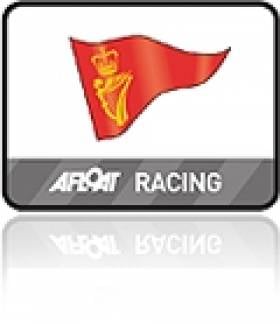Displaying items by tag: Granny knot
Tiger Leads Class III in Royal Cork October League (PHOTOS HERE)
What a day this Sunday's racing turned out to be. From the moment one turned the corner on to the Crosshaven road at Carrigaline there was magic in the air writes Claire Bateman. The sun was shining, the trees were resplendent in their multi colour seasonal changes and the line of cars making their way to the Royal Cork Yacht Club was non-stop. The forecast said Sunday was going to be a very nice day with lots of sunshine but nowhere did I hear anyone say anything other than winds would be light and, so it seemed, until a flag outside one of the supermarkets on the road to Carrigaline seemed to be moving pretty nicely and was a taste of things to come.
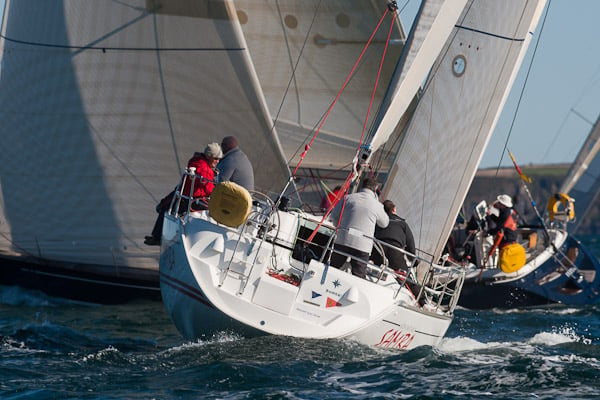
Tight racing in the penultimate race of Royal Cork's October League. Photo: Bob Bateman. Scroll down for more photos from yesterday
Classes Zero, One and 1720s got the nicest wind on the laid course to day. Race Officer Richard Leonard and his race committee in Capta Ventum, kindly provided by Pascal Healy, certainly made the best of the day. Today Richard decided on a change of format and started the 1720s first followed by Classes Zero and One together and then Class Two. He gave the fleets short courses providing very tight racing ensuring the crews had plenty of hard work and also providing very exciting viewing with a few heart-stopping moments. The 1720s, Zero and One did three rounds and Class Two did two rounds. With a northerly breeze of some 10 knots gusting to 12 and occasionally 14, it was to provide a tantalising taste of what was to come and there was no disappointment. Voices that hadn't needed to be raised at marks on previous Sundays found the necessity to make themselves heard today and the action was fascinating with hard work on the boats but a sense of great sailing exhilaration emanating from them.
Coming into race two of the day the skippers and crews had got the bit well between their teeth and were all like bucking broncos at the start line. In Class Zero there was an individual recall sounded. Jump Juice and Freya answered the call immediately and returned to restart and after some little while Gloves Off returned and while not knowing the reason why, one can only assume the helmsman perhaps was not quite convinced he had been over but then decided to return having considered it. Again the wind duly obliged and as in the first race, there were boats to the left, boats to the right and boats pretty well everywhere one looked. In Class Zero Tom Roche's Meridian from Kinsale had been performing extremely well but was slightly under
crewed today and was unlucky enough to have an incident at the weather mark in this race and after that things just did not go their way and they retired. This must have been disappointing as they had been doing so well. With Jump Juice winning the first race today and Gloves Off taking the second race and first overall to date in the series, the last day of racing next Saturday will be crucial as these races will be non discardable.
Race Officer Anthony O'Leary stood in to day for David O'Brien and the committee boat Sabrone was again kindly provided by Admiral Paddy McGlade. It was not such a lucky day wind wise inside the harbour for Classes Three and Four and White Sail 1 and 2. There was also extremely low water to day
and some of the skippers mentioned they had in fact touched rocks. Nonetheless they enjoyed good racing if at a somewhat lower pace than the competitors on the laid course.
At this point in time Class Three IRC looks like a two horse race with Tiger on 9pts followed by Bandit on 11pts. Class Four has a very similar situation with Sundancer on 9pts followed by Granny knot on 11pts. In White Sail 1 IRC Minx 111 had a good day to day with a first and second and currently has 7pts overall and the two big boats in the fleet Chancer from Kinsale and Aisha from RCYC are on 14pts each. In White Sail 2 IRC Plumbat is on 6pts overall with Phaeton on 9pts and Silk Breeze on 12pts.
And so we are coming to the final race of this exciting series. All competitors should note carefully that racing will take place on SATURDAY NEXT OCTOBER 30TH. The prize giving dinner will take place that evening at the Club House .
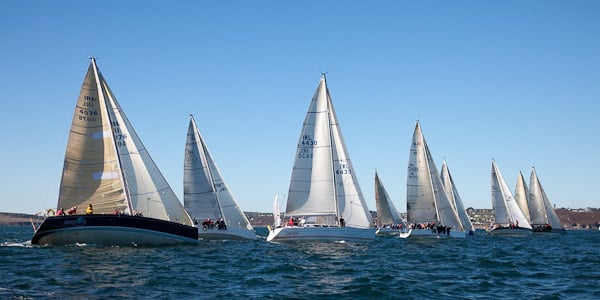
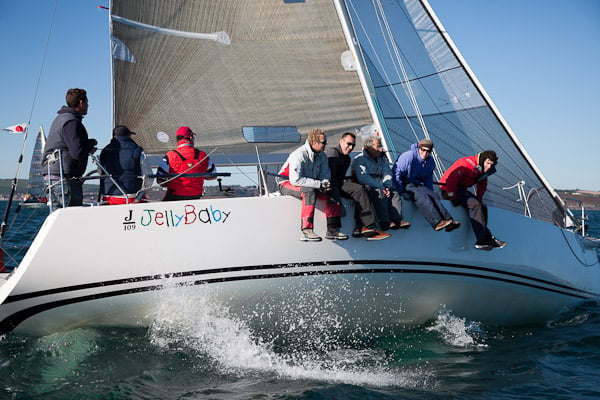
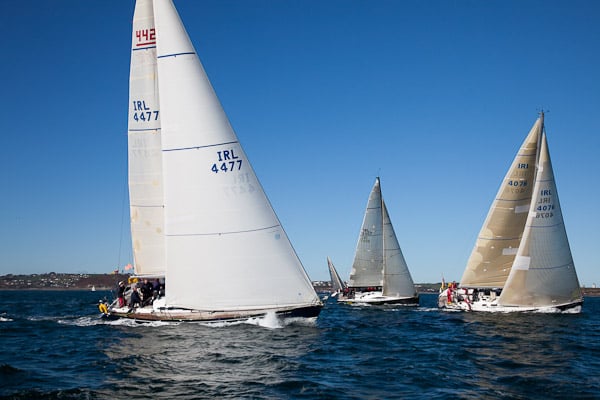
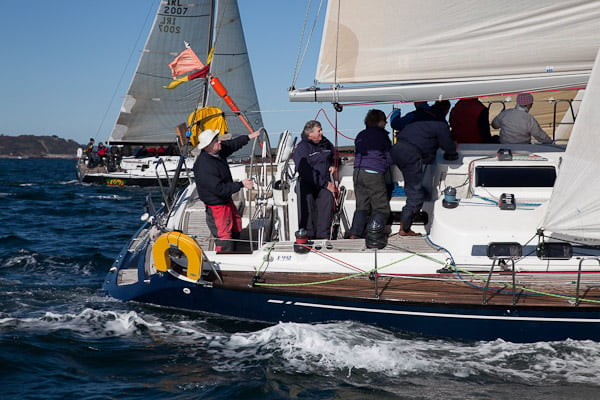
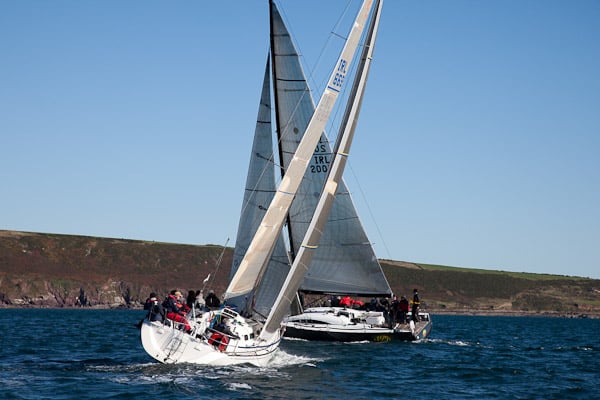
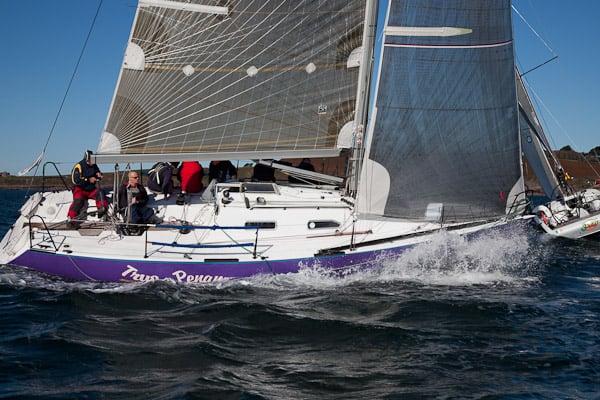
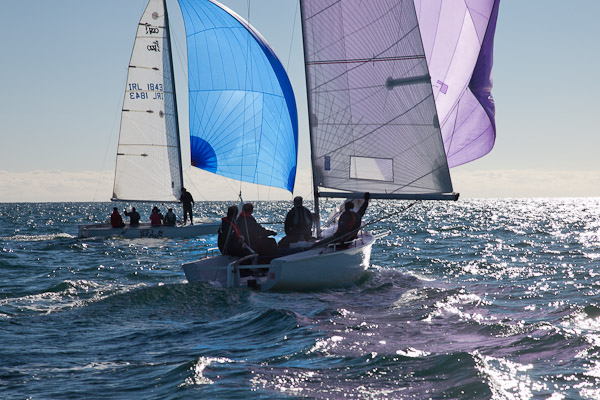
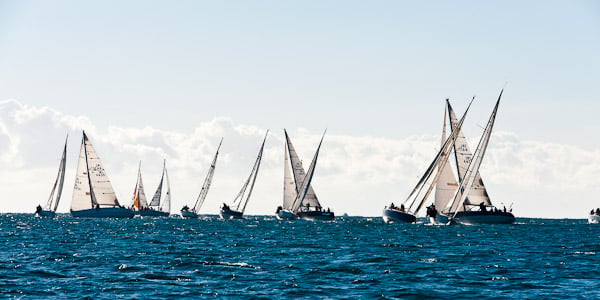
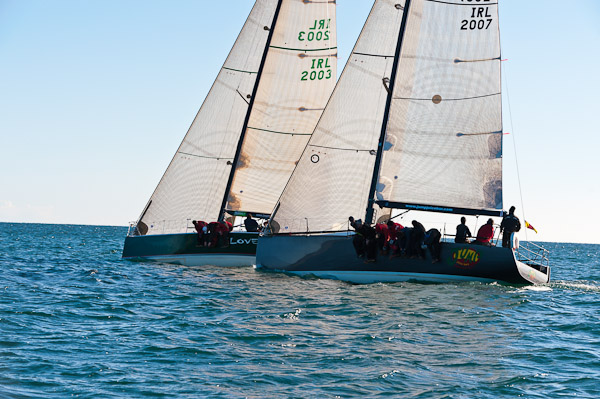
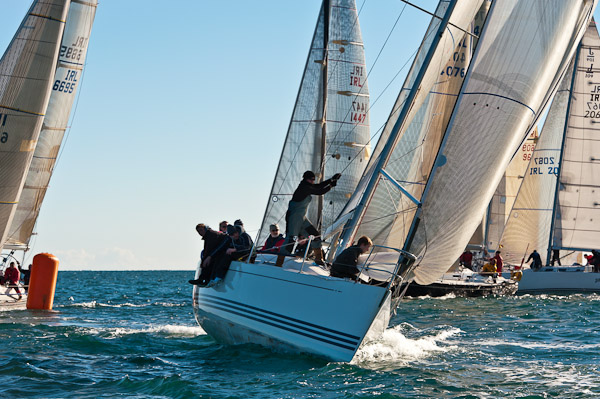
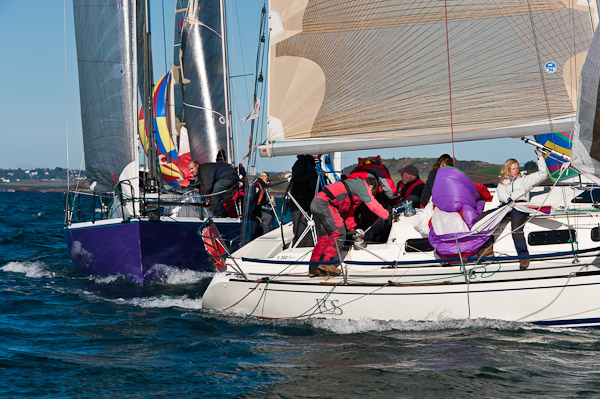
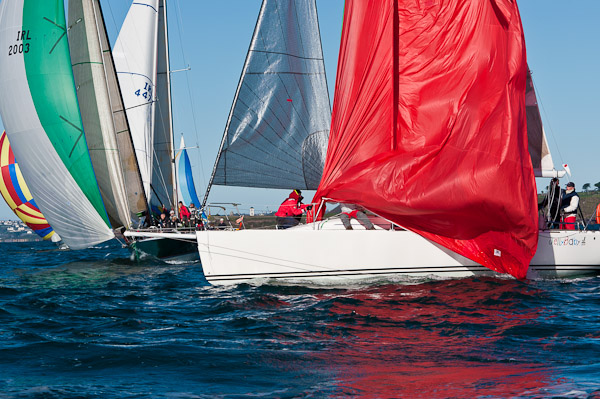
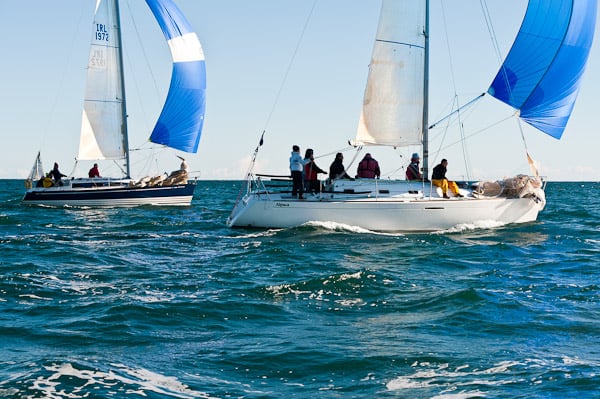
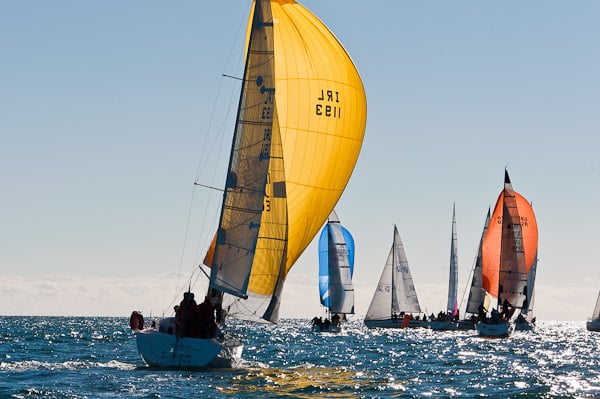
MORE OCTOBER LEAGUE GALLERY IMAGES HERE



























